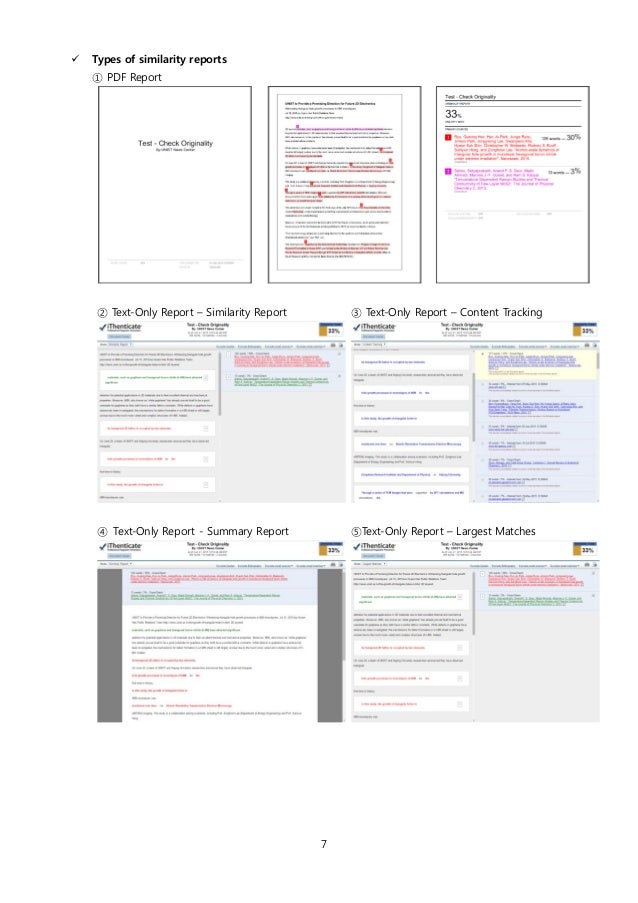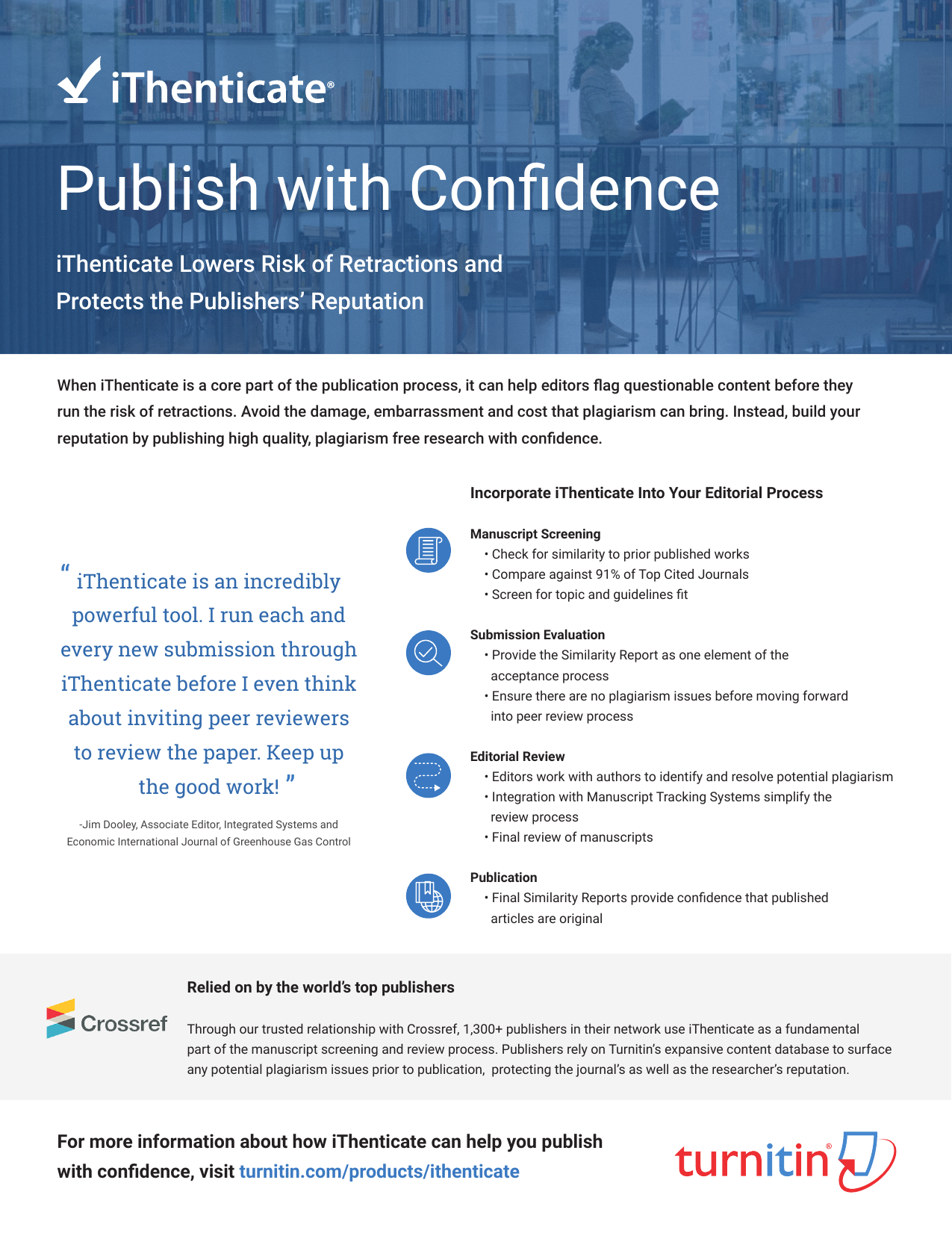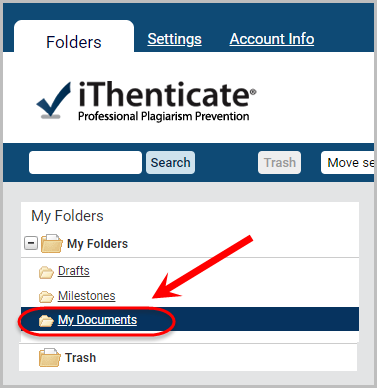

- #Ithenticate report update#
- #Ithenticate report software#
- #Ithenticate report password#
- #Ithenticate report professional#

Is my document added to the iThenticate database when I upload it to check for copied text? The university believes that iThenticate can be a critical component in keeping CWRU researchers competitive in, and compliant with, publication and granting agency requirements. Journal editors also use it and may reject submissions prior to peer review if failures to properly cite are detected. In addition to its use in grant application processes, iThenticate can also be used as part of the pre-submission process for academic publications. As such, proper referencing and unique content will be a key measure in assuring the submission of a competitive grant application.
#Ithenticate report software#
Many funding agencies-including the NIH, NSF and DOE-use iThenticate's software as part of their proposal assessment procedures. Why should I be concerned with proper citation and content originality in my scholarly works? CWRU has affiliations with, but does not manage or oversee these resources External resources are guided and managed by the individual entities as described in the sites linked above. Vendor’s FAQ (system requirements, reporting, document size limits, etc.): Vendor’s library of training materials for use of the software and understanding the results: Please see the CWRU-specific video tutorials and Q&A below for information on manuscript and report access. Users should match the submission to their School, indicating the nature of the document being uploaded (Dissertation, Funding Proposal, or Publication). When uploading files to iThenticate, it is important to assign each upload to a Reporting Group. In order to assess the areas in which the iThenticate service is most utilized and useful, Reporting Groups have been organized by School/by document-type. #Ithenticate report update#
The system is configured to sync with CWRU Network IDs and passwords and will automatically update whenever CWRU Network credentials are updated.
#Ithenticate report password#
Users should not change their ID or password for their iThenticate account. It is important to note that iThenticate itself cannot identify plagiarism specifically.Īlways use the address to access iThenticate. The user then determines if the matched text represents a failure to properly cite material, thus helping to ensure content originality and avoid the appearance of plagiarism. iThenticate identifies text in the uploaded document that matches text from the database materials. The software screens uploaded scholarly research documents against a database of more than 40 million published articles, webpages and other scholarly content to check for possible failures to properly cite text from other sources. It is advantageous for authors to be able to review their work using the same tools. Editors and funding proposal reviewers are increasingly using iThenticate to view and move submitted documents through the peer-review or referee process to publication and funding. Using iThenticate, authors can ensure that they have appropriately cited their sources and presented the highest quality written work. Faculty, post-docs, and graduate students should use iThenticate as part of their pre-submission processes when completing grant applications and texts for scholarly publication.
Research Computing and Infrastructure ServicesĬWRU licenses iThenticate from its developer iParadigms for use by faculty, staff and students in the research field or preparing work for academic publishing.  Technology for Remote Teaching and Working.
Technology for Remote Teaching and Working. #Ithenticate report professional#
CWRU Administrative Professional Series (CAPS). The NIH Library is part of the Office of Research Services (ORS) in the Office of the Director (OD). The NIH Library in Building 10 serves the information needs of NIH staff and select Department of Health and Human Services (HHS) agencies. To request an iThenticate report, use the Editing Request form available in the Services section of the NIH Library website. Read the Office of Research Integrity’s (ORI) guidance on plagiarism at: Reports are usually delivered within three business days. Requesters must be the first, last, or corresponding author of the NIH work-related, unpublished manuscript. You can then correct any missing citations before the manuscript is sent through the NIH approval process. Upon request, an editor will analyze your unpublished journal article manuscript using the Library’s licensed iThenticate software and send you the report. Before submitting to a journal, use the NIH Library’s Plagiarism Checking Service to help identify any missed citations or paraphrased wording too similar to a published source. NIH authors, rest easier knowing that all of your manuscript’s sources are cited. We are investigating alternative options for plagiarism checking. UPDATE : Due to security concerns, the NIH Library is no longer able to use the iThenticate software.







 0 kommentar(er)
0 kommentar(er)
